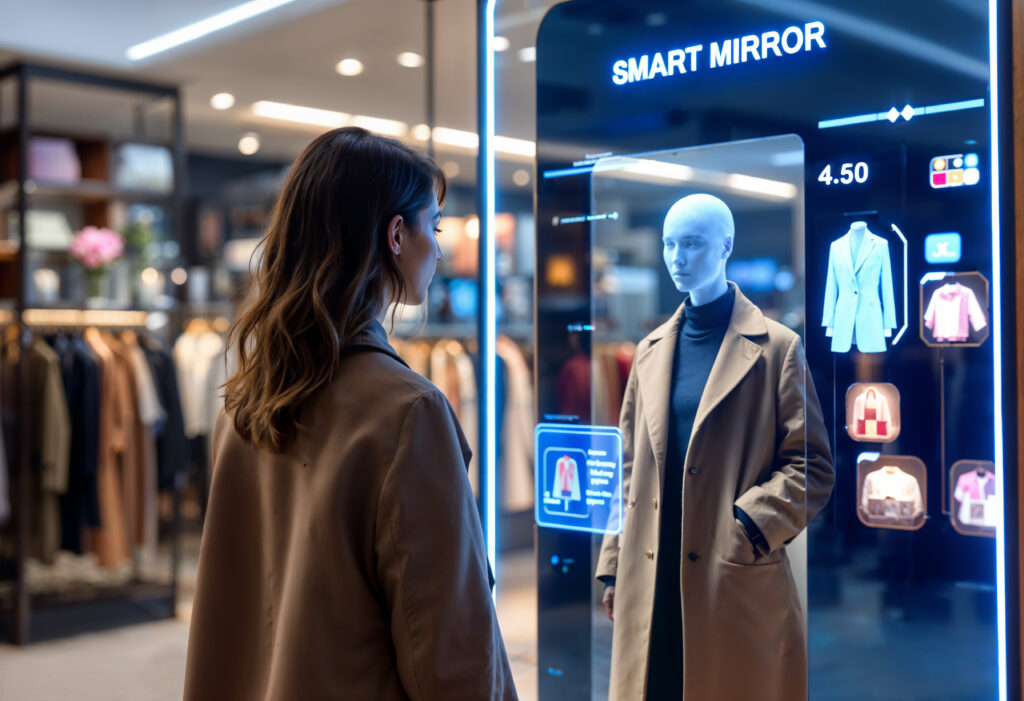
Personalized Product Recommendation Engine: Boosts Engagement for D2C Electronics Brand
In today’s competitive e-commerce landscape, Direct-to-Consumer (D2C) brands must work smarter to keep customers engaged and ensure high product visibility. One such D2C electronics brand, operating solely online, partnered with Teenva AI to overcome a critical challenge: low product discovery and customer engagement.
This case study outlines how our Personalized Product Recommendation Engine transformed their business, leading to measurable improvements in site engagement, repeat purchases, and email performance.
The Challenge: Limited Product Discovery & Low Engagement
With a growing product catalogue and a highly tech-savvy audience, the brand struggled with:
- Users bouncing off after viewing 1–2 products
- Low repeat purchase rate
- Underperforming email campaigns due to irrelevant recommendations
Their Shopify-powered store lacked intelligent automation to surface relevant products to the right users. Without personalisation, customers were overwhelmed or unimpressed — leading to lost revenue opportunities.

The Solution: Intelligent Personalization with a Hybrid AI Model
Teenva AI designed and deployed a Personalized Product Recommendation Engine tailored for this D2C brand’s ecosystem. Here’s how we approached the solution:
1. Hybrid Recommendation Algorithm
We implemented a hybrid system combining:
- Collaborative Filtering: Analysed user behaviour such as clicks, purchases, and product views.
- Content-Based Filtering: Mapped user preferences with product features like specifications, price range, and customer reviews.
This ensured accurate and dynamic recommendations that evolved with every customer interaction.
2. Shopify Integration
The engine was seamlessly integrated with their Shopify store using custom middleware APIs. This enabled:
- Real-time product suggestions on product pages, carts, and homepage
- Dynamic content blocks based on user profiles
3. Email Personalization
Using data from browsing and purchasing history, the recommender system synced with their email automation tools (like Klaviyo), generating:
- Personalised product carousels in marketing emails
- Triggered email flows based on interest signals
How We Ensured Data Privacy and Scalability
Building a Personalized Product Recommendation Engine for a D2C brand involves not just intelligent algorithms, but also robust data handling and infrastructure planning. At Teenva AI, we ensured that the solution was both scalable for growth and secure by design.
1. GDPR-Compliant Data Architecture
The system was designed to respect user privacy and consent. All behavioural data—such as clicks, cart additions, and purchases—was anonymised and stored securely. Key privacy measures included:
- Consent-based data collection via cookie banners
- Data hashing and pseudonymisation of user IDs
- Automated data retention policies to purge old logs
This ensured compliance with GDPR and India’s evolving data protection regulations, which is essential for D2C brands operating across borders.
2. Scalable Microservices Design
Instead of a monolithic app, we structured the engine as a collection of microservices using Docker containers. This enabled:
- Rapid scaling during high-traffic sales events
- Independent deployment and updates of components
- Easy integration of new recommendation models in the future
We used Kubernetes on AWS to auto-scale based on real-time demand, ensuring consistent performance even during peak loads.
3. Real-Time Feedback Loop
The system didn’t just deliver recommendations — it learned from them. Every interaction (clicks, skips, conversions) fed back into the model to continuously optimise performance. This closed feedback loop allowed for:
- Fine-tuning of weights between collaborative and content-based scores
- Dynamic adaptation to seasonality and changing user preferences
- Rapid testing of new product categories or bundles
4. Minimal Impact on Load Times
Since e-commerce performance depends heavily on speed, we built the recommendation calls using asynchronous API endpoints, cached at the CDN layer. This ensured:
- Page load times were unaffected
- Recommendations loaded in parallel without blocking the UI
- Customers experienced a seamless journey
The Results: Data-Driven Growth in Every Metric
Within just a few weeks of deployment, the brand experienced a dramatic improvement in user engagement and conversions:
- 43% increase in average time on site
Customers spent more time browsing relevant products tailored to their interests. - 38% boost in repeat purchases
Returning users received smarter recommendations, improving conversion chances. - 22% rise in email Click-Through Rates (CTR)
Emails now included contextually relevant products, increasing engagement and ROI.
Why Personalized Recommendations Matter for D2C Brands
A Personalized Product Recommendation Engine is no longer a luxury — it’s a growth necessity. Especially for D2C brands with online-only operations, personalised discovery tools directly impact:
- Customer lifetime value
- Cross-selling and upselling opportunities
- Email marketing effectiveness
- Inventory movement and merchandising insights
Technologies Used
- Python-based ML pipeline
- AWS for data processing
- Shopify Admin API
- Klaviyo & Mailchimp API integration
- PostgreSQL for behavioural data storage
- Real-time inference through Flask API endpoints
Future Scope: Scaling Beyond Just Recommendations
Building on this success, the brand now plans to expand the system to include:
- AI-driven bundling suggestions
- Personalised landing pages
- Behavioural segmentation for audience-specific campaigns
Want Similar Results for Your Business?
At Teenva AI, we specialise in building custom AI-powered recommendation engines that are fully integrated with your tech stack. Whether you’re an e-commerce startup or an established brand, our solutions are built to drive growth, engagement, and customer satisfaction.
Get in touch with us today to learn how we can help you build smarter customer journeys.

